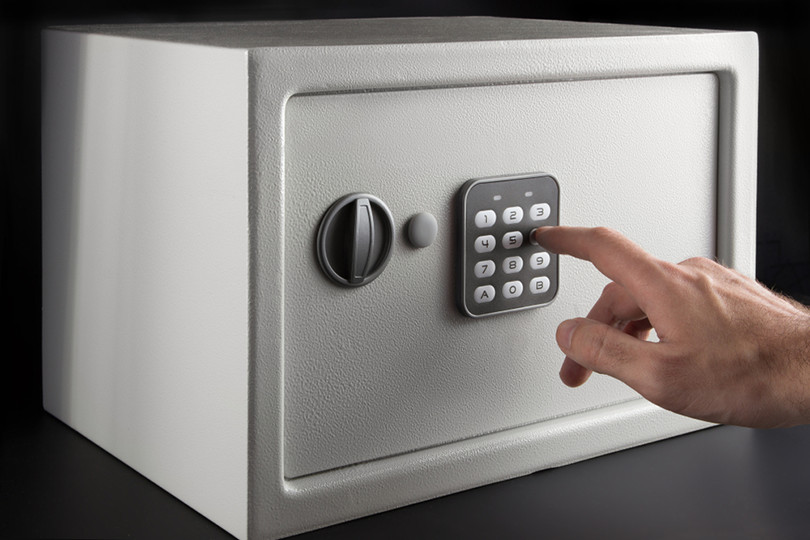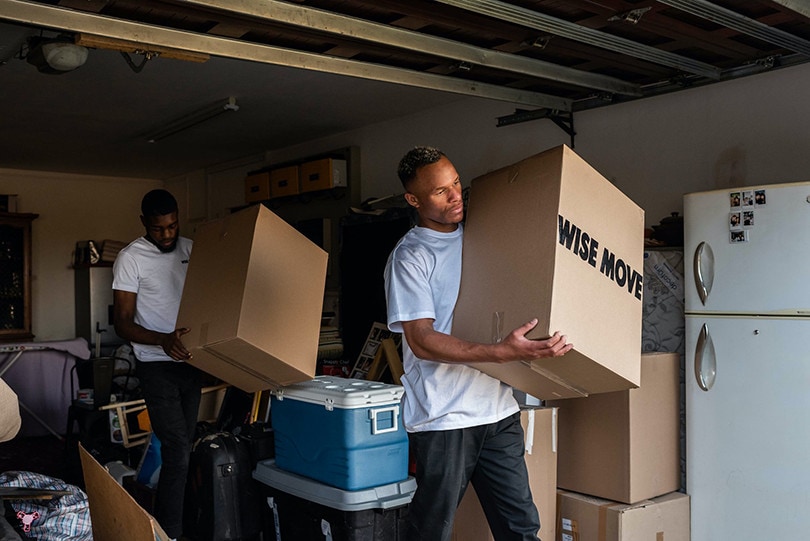How to Move a Safe: 4 Tips & Tricks
-
Pete Ortiz
- Last updated:

Moving isn’t the most fun venture and adding heavy safes to the equation makes it even more tricky. Fortunately, there are some precautions and tricks you can use to make moving your heavy, unwieldy safe a breeze. Let’s check out exactly how to move your safe.
Before You Start
To move a heavy safe yourself, you’ll need some friends, equipment, and preparation. Taking precautions when moving a safe will help you move it without injury or damage to your property. Hiring movers is usually the best way to have a safe moved, but you can do it yourself too.
- Transportation
- Appliance dolly
- 2–3 friends or helpers
- Furniture blankets
- Packing tape
- Straps or ropes
- Cardboard, newspapers, or old rugs (optional)
Once you’ve gathered these, let’s get down to business and help you move your safe.

The 4 Tips to Moving a Safe
1. Prepare the Safe
First, you’ll need to remove all your valuables and get the safe ready for transport. This means you need to make transportation arrangements for your documents, money, valuables, firearms, or other items stored in your safe.
The next step is to firmly close the safe and ensure that it won’t accidentally open during transport. If the door is loose, it could damage the safe or your vehicle. Finally, wrap the safe in thick furniture blankets and secure them with packing tape. The safe should be entirely covered without any gaps.

2. Move the Safe to Your Vehicle
A heavy-duty appliance dolly is recommended for moving large safes, while regular dollies or hand carts may suffice for smaller safes. If you’re unsure, check out the maximum weight that the dolly can support. If you’re renting from a local store, they’ll be able to tell you.
Next, measure the doorways you’ll be taking the safe through. If any are smaller than the dimensions of the safe, you’ll have to find an alternate route out of the house. Clear obstacles along your exit route as you go. If you’re concerned about damage to your floors or walls, you can put down some old rugs, newspaper, or cardboard.
Have a helper or two help you move the base of the safe onto the bottom plate of the dolly and strap it on with supporting straps. Carefully tilt the dolly backward, being careful not to tip too far forward or backward, then roll it to your moving vehicle along your chosen exit route. Corners should be taken very wide, and you can go as slow as you need to.
Stairs are more of a challenge. With at least one person below and above, move the dolly down one or two steps at a time. If the safe is lighter, you can go down more quickly. However, it’s not a race, and your goal is to get the safe down safely without any damage or injuries. To make sure things go smoothly, have at least one person moving ahead of the safe to keep the path clear of obstructions and communicate if you need to put the safe down.
3. Load the Safe
If you have a moving truck with a ramp, this will be a cinch. Simply lower the provided ramp according to the moving truck’s manual and roll the dolly up the ramp.
If there’s no ramp or you’re working with a smaller vehicle, there’s a bit more work left. You’ll have to manually lift the dolly up if it fits within your vehicle. If it won’t, remove the safe from the dolly first and move the safe into your vehicle.

4. Secure & Go
Once your safe is in the moving truck or your vehicle, you’ll need to secure it before you take off. I know it’s exciting to get the hard part out of the way, but this step will keep you safe and your moving vehicle safe. Use securing straps or rope to secure the safe to your vehicle, making sure that the straps or rope are snugly tied. Now you can take the safe to your destination and have fun unloading it.\
Conclusion
Safes are one of the more difficult items to transport when you’re moving, but it’s not an insurmountable problem. With some helpers, equipment, and a few safety precautions, you can have your safe moved in no time.
Featured Image Credit: Gorodenkoff, Shutterstock
Contents


